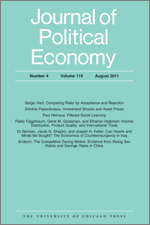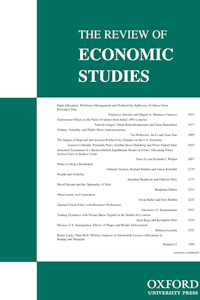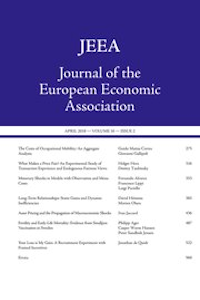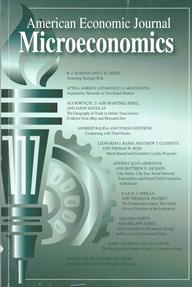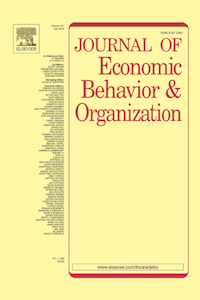
Dessi, R., Gallo, E. and Goyal, S.
Network Cognition
Journal of Economic Behavior and Organization
Vol. 123 pp. 78-96 (2016)
Abstract: We study individual ability to memorize and recall information about friendship networks using a combination of experiments and survey-based data. In the experiment subjects are shown a network, in which their location is exogenously assigned, and they are then asked questions about the network after it disappears. We find that subjects exhibit three main cognitive biases: (i) they underestimate the mean degree compared to the actual network; (ii) they overestimate the number of rare degrees; (iii) they underestimate the number of frequent degrees. We then analyze survey data from two ‘real’ friendship networks from a Silicon Valley firm and from a University Research Center. We find, somewhat remarkably, that individuals in these real networks also exhibit these biases.
Keywords: Networks; Cognition; Degree distributions; Biases
Author links: Sanjeev Goyal Edoardo Gallo
Publisher's Link: http://dx.doi.org/10.1016/j.jebo.2015.11.015 ![]()
Open Data link: https://ars.els-cdn.com/content/image/1-s2.0-S0167268115003224-mmc1.pdf
Cambridge Working Paper in Economics Version of Paper: Network Cognition, Dessi, R., Gallo, E. and Goyal, S., (2014)

